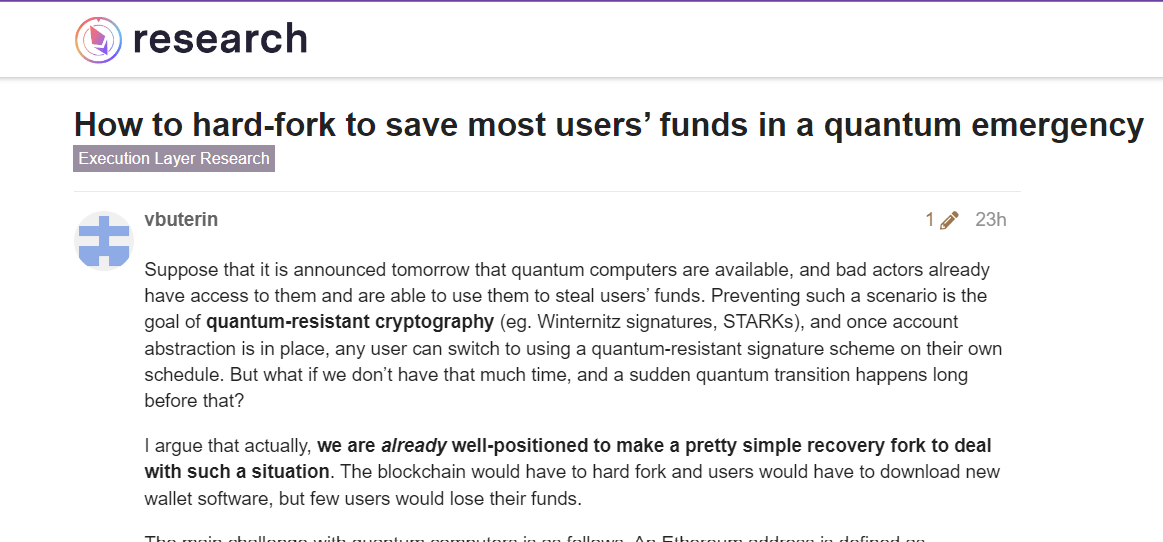Bitcoin price at the time of writing is above $69,000, and Ethereum has not yet surpassed $4,000. However, the focus this time is beyond the price. Ethereum co-founder Vitalik Buterin made some significant statements hours ago about quantum computers and the future of blockchain.
Quantum Computers and Blockchain
Cryptocurrencies are currently extremely secure against brute force style wallet attacks. Current technology suggests that even hundreds of years of attempts would not be enough to crack wallet keys. However, future quantum computers could perform attacks far beyond today’s computing power.
For now, quantum computers are not at a level to pose a risk. Moreover, it seems unlikely that they will be accessible enough for attackers to use in the future. But the possibility is not zero. Buterin addressed this issue and said;
“If quantum computers become usable and malicious individuals start using them to steal users’ funds, our response will be very simple. Blockchains will perform a hard fork and users will need to download new wallet software, but very few users will lose their funds. Such a hard fork could in principle start being built tomorrow.”
“We can prepare the Ethereum ecosystem for this early on.”

Quantum Computers and the Future of Cryptocurrency
Vitalik explains this issue with examples. For instance, if quantum computers fall into the hands of attackers tomorrow. The purpose of quantum-resistant cryptography (e.g., Winternitz signatures, STARKs) is to prevent such a scenario, and once account abstraction is implemented, any user can switch to a quantum-resistant signature scheme at their own pace.
“What if quantum computers suddenly enter our lives? Actually, I argue that we are already in a good position to perform a fairly simple recovery fork to deal with such a situation. An Ethereum address is defined as keccak(priv_to_pub(k))[12:], where k is the private key and priv_to_pub is an elliptic curve multiplication that converts a private key into a pubkey. In quantum computers, elliptic curve multiplications can be reversed (because this is a discrete log problem), but hashes are still secure. If a user has not made any transaction with their account, only the address is public and is already secure. However, if a user has made even a single transaction, the signature of that transaction reveals the public key, which would allow the private key to be exposed in a post-quantum world. Therefore, most users would be vulnerable.”
Vitalik Buterin says they can take security much further here.
“The key point here is that in practice, most users’ private keys are the result of a group of hash calculations. Many keys are generated using BIP-32, which produces each address from a main seed phrase through a series of hashes. Many non-BIP-32 key generation methods work similarly: for example, if a user has a brainwallet, it is usually a series of hashes applied to some passwords.”
Thus, Buterin also dispels the narrative that quantum computers could be the end of cryptocurrency. Even in the worst-case scenario, it is possible to revert all blocks following the first block that clearly shows large-scale theft and secure the network. But could such an attack be possible tomorrow for the interests of a group? That is, of course, another question.

 Türkçe
Türkçe Español
Español









